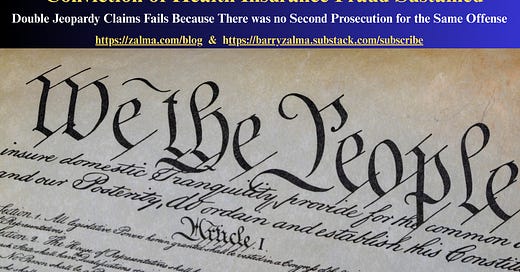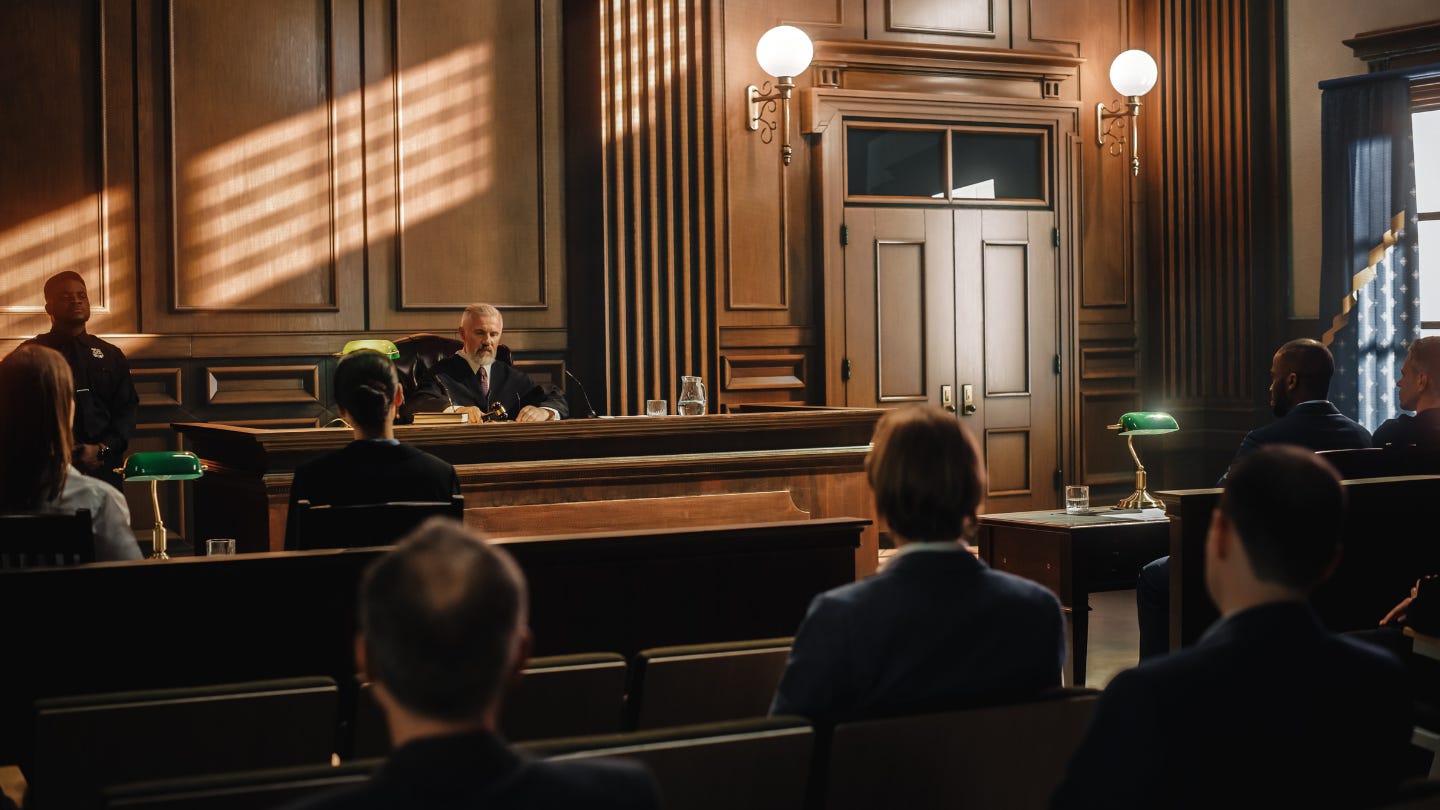Conviction of Health Insurance Fraud Sustained
Double Jeopardy Claims Fails Because There was no Second Prosecution for the Same Offense
Post 5057
See the full video at https://lnkd.in/dHta_-yp and at https://lnkd.in/ddck47wm and at https://zalma.com/blog plus more than 5050 posts.
Posted on April 24, 2025 by Barry Zalma
Tariq M. Abdulaziz was charged with larceny in the first degree by defrauding a public community, health insurance fraud, and failure to appear. The charges of larceny and health insurance fraud were tried to the court, and Abdulaziz was found guilty of health insurance fraud.
In State Of Connecticut v. Tariq M. Abdulaziz, No. AC 45916, Court of Appeals of Connecticut (April 8, 2025) the Court of Appeals found that Abdulaziz had submitted false claims for face-to-face services to the Department of Social Services’ Medicaid program while he was in Texas.
The trial court acquitted him of larceny in the first degree due to the state’s failure to prove the value of the wrongfully obtained property exceeded $2000 and the court found him guilty of health insurance fraud, as he had presented false statements to the insurer with the intent to defraud.
The court sentenced Abdulaziz to three months of incarceration, execution suspended, and eighteen months of probation. The state filed a motion to correct an illegal sentence, arguing that the court should apply the sentencing provisions for larceny in the second degree. The court partially granted the motion and resentenced Abdulaziz to three months of incarceration, execution suspended, and one year of probation.
The defendant claimed that the trial court violated the double jeopardy clause and his constitutional right to due process. The court rejected these claims and affirmed the conviction of health insurance fraud.
ANALYSIS
The United States Supreme Court has explained that the fifth amendment guarantee against double jeopardy gives rise to three separate constitutional protections.
It protects against:
1. a second prosecution for the same offense after acquittal.
2. a second prosecution for the same offense after conviction.
3. multiple punishments for the same offense.
The defendant’s present claim invokes the first of these protections under the collateral estoppel branch of double jeopardy jurisprudence.
The defendant contends that the court’s findings on the ”intent to defraud or deceive” and the ”material[ity]” elements of health insurance fraud cannot be reconciled with his acquittal on the larceny charge because these elements both require that the ”alleged fraud concern something of value.”
The Court of Appeals concluded that the trial court did not, as the defendant claims, find ”that no value . . . was proven.” In fact, the court expressly found that ”some value [was] proven,” which is precisely what the defendant claims the court was required to do.
The nature of the services the defendant and the recipients’ other providers and supporters were offering were supposed to be home and community based. It simply is not reasonable or logical to conclude that they could, or would, be offering these types of services from Texas, on 114 separate occasions, particularly when in-person, face-to-face meetings without the service recipient present are ”highly unusual.”
Instead, the reasonable and logical view of the evidence presented supports the court’s finding that at least some of the face-to-face services for which payment was sought and obtained were not performed at all, and thus the defendant was properly convicted of health insurance fraud.
The judgment was affirmed.
ZALMA OPINION
It takes a great amount of Chutzpah to claim that a health care provider in Texas did “face to face” treatment with a patient in Connecticut. It is not ”highly unusual” as the defendant claimed, it is impossible. He was convicted of insurance fraud for claiming face to face treatment and had the unmitigated gall to claim he did the impossible and the court was wrong because he was acquitted of a similar, but different crime. The Court of Appeals took dozens of pages to explain why it affirmed the trial court who was kind enough to keep the defendant out of jail. I would hope more insurance fraud perpetrators are sentenced to serve a long time in prison.
(c) 2025 Barry Zalma & ClaimSchool, Inc.
Please tell your friends and colleagues about this blog and the videos and let them subscribe to the blog and the videos.
Subscribe to my substack at https://barryzalma.substack.com/subscribe
Subscribe to my substack at https://lnkd.in/gmmzUVBy
Go to X @bzalma; Go to the Insurance Claims Library – https://lnkd.in/gwEYk







